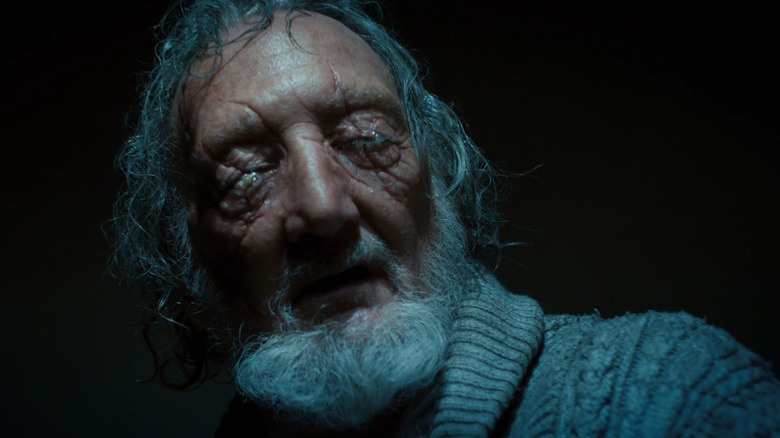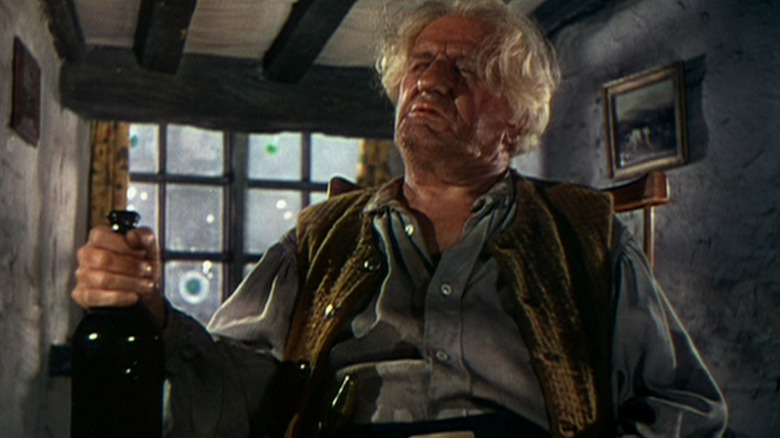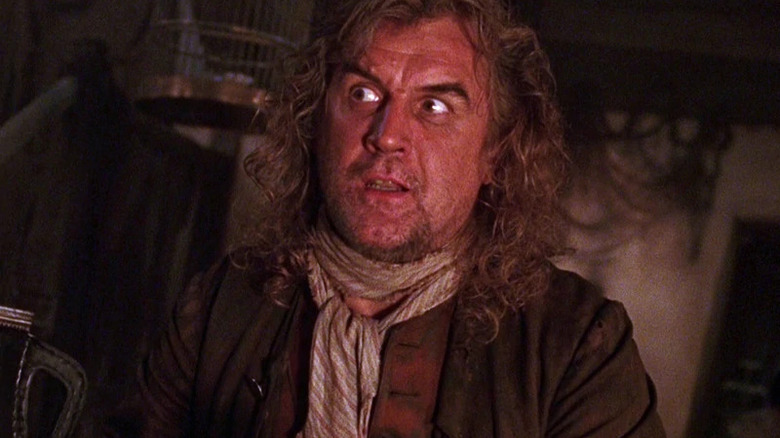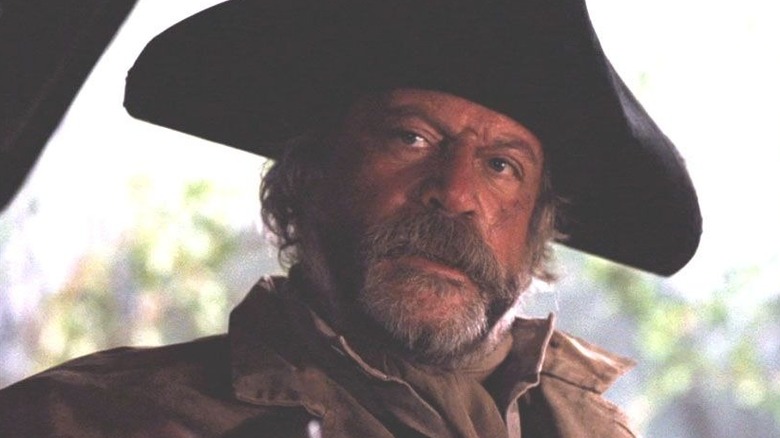Robert Englund's Stranger Things Character Pulled More From Treasure Island Than A Nightmare On Elm Street
The raison d'être of "Stranger Things" is its nostalgia for 1980s genre entertainment. Taking a lot of tonal and story cues from Stephen King's output from that decade ("It" and "Firestarter" in particular), and including a veritable scavenger hunt of recognizable films and TV references (Eggo Waffles! New Coke! "Ghostbusters"! "Dragon's Lair"!), "Stranger Things" is just as much an identification game as it is a story about intriguing characters.
The first seven episodes of the fourth season of "Stranger Things" dropped on Netflix on May 27, and fans of 1980s horror movies were likely pleased to spot actor Robert Englund, an actor who starred in such '70s hits as "A Star is Born" and "Big Wednesday" before entrenching himself in the public consciousness with his portrayal of the vicious undead dream demon Freddy Krueger in 1984's "A Nightmare on Elm Street." Englund would reprise the role for six additional sequels, including the playful match-up flick "Freddy vs. Jason." In "Wes Craven's New Nightmare," Freddy played himself.
In "Stranger Things," Englund's casting was clearly inspired by the showrunners' affection for "A Nightmare on Elm Street." He plays a character named Victor Creel, a creepy blind old man who — the show would have you believe — is the new central villain. He tells a lot of dark, creepy stories and provides a good deal of the season's exposition. His villainy was, however, a misdirect, and Creel was merely another victim of the sinister forces at work in Hawkins, IN.
Billy Bones
While Englund's presence in an '80s nostalgia-inflected show invited comparisons to Freddy Krueger, Englund — in an interview with The Hollywood Reporter — explained that Freddy was far from his mind when playing Creel. He was inspired by the character of Billy Bones from Robert Louis Stevenson's 1883 novel "Treasure Island."
A quick recap for those unfortunate enough not to have read it: At the start of "Treasure Island," the young protagonist Jim Hawkins (as in Hawkins, IN? Hm...) works at a rundown inn called the Admiral Benbow where he regularly serves an old drunken raconteur named Billy Bones. Billy tells stories of pirate treasure, and gravely warns young Jim about an ominous one-legged man. The inciting incident in "Treasure Island" is when Billy receives a mysterious note from the terrifying Blind Pew. The note is nothing more than a black spot, which is a pirate warning for impending assassination. Before pirates can get to him, though, Billy dies of a heart attack.
Billy Bones foreshadows the book's forthcoming dread, and cues readers into the potential sinister qualities of the otherwise affable cook Long John Silver when he appears later in the story. Billy bones is also an ex-pirate himself, and lives in eternal fear of his past — and of Long John Silver — catching up to him. He dies with that fear.
Englund noticed similarities between Billy Bones and Victor Creel and altered his performance accordingly. In interviews, Englund is typically well-spoken and speaks of his craft with aplomb. With The Hollywood Reporter, Englund discussed his method of accessing strange imagery to invent a role.
One of those weird images
"As actors, we access strange imagery. We use imagery sometimes that has nothing to do with what we're doing. And one of the things I was using was a character from 'Treasure Island' named Billy Bones, who tells a huge story to Jim Hawkins about Long John Silver. It had nothing to do with Freddy Krueger or Nightmare. It was just one of those weird images that come to you.'
True to the drunken fireside anecdotes of Billy Bones, Englund wanted Victor Creel's stories to feel scary, emotional, and immediate. Englund wouldn't have been happy with recording voiceovers for those scenes and was happy to use on-set audio for those parts. A voiceover tends to feel distant. Scary and intense, yes, but inorganic. A whispery, close-to-the-mic voiceover doesn't ever sound like organic speech.
"My only concern was that I knew they were spending lots of money doing this reenactment, this flashback of the story I tell about the house that the Creels lived in that was haunted. And I knew that they'd be cutting away from me while I was telling parts that were very emotional. And I wanted that emotion to bleed into the parts, so they used the dialogue I performed. It wasn't done in post. I didn't want it to sound like I was doing some post-production, late-night jazz disc jockey with a deep voice."
Englund knows what he's talking about. The actor is familiar with voice work, having played various superhero characters in animated form. Englund has played Felix Faust on "Justice League," The Riddler on "The Batman" TV series, The Vulture on "Spectacular Spider-Man," and Pluto on "Hulk and the Agents of S.M.A.S.H."
Acting blind
Englund also spoke in the Hollywood Reporter about how little he needed to prepare for playing a blind character. The makeup involved covered his eyes — his eyes were scarred shut — and he spent most of his time hermetically sealed in a small, spare cell. Englund quickly memorized the geography of the scene, and worked his way around physically as a blind person might. This was a relief for Englund who didn't have to "act" blind. Thanks to a makeup test, he knew what it was going to look like, so he had a full vision of his character to shooting:
"I was very relieved when I found out that Barrie Gower and Duncan Jarman from 'Game of Thrones' — the guys that created the Night King — were doing my makeup. I did a makeup test with them early on over in London. So, I did know what the makeup would look when I was preparing the dialogue. Obviously, I couldn't see out of the makeup, so I didn't have to act blind. And because I was imprisoned in that cell for so long, I knew that a blind man would know his way around in there. He knew where his bed was, where the bars and his desk and his chair would be. I didn't have to devote any energy to worrying about the makeup or playing blind."
The first half of "Stranger Things," season four, is currently on Netflix, with the additional episodes set to be released July 1, 2022.



